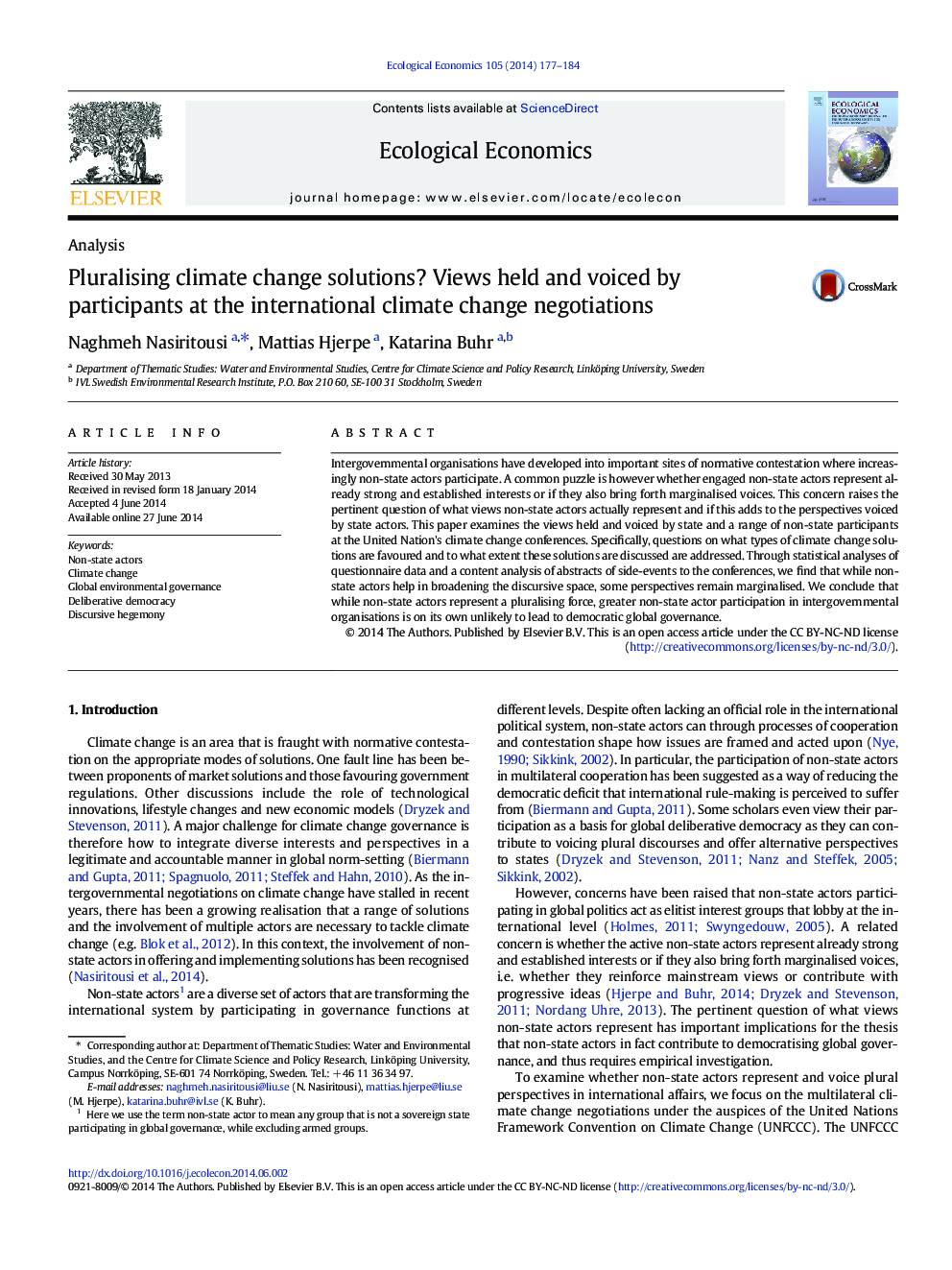| کد مقاله | کد نشریه | سال انتشار | مقاله انگلیسی | نسخه تمام متن |
|---|---|---|---|---|
| 5049715 | 1476374 | 2014 | 8 صفحه PDF | دانلود رایگان |
- Climate change is an area fraught with normative contestation on the appropriate modes of solutions.
- We empirically explore views held and voiced by state and a range of non-state actors on solutions to climate change.
- The main divergences in views are found within the non-state actor community.
- Some solutions, such as lifestyle changes, remain marginalised at UNFCCC side-event discussions.
- The composition of the group of participating non-state actors is important for the overall balance of ideas voiced.
Intergovernmental organisations have developed into important sites of normative contestation where increasingly non-state actors participate. A common puzzle is however whether engaged non-state actors represent already strong and established interests or if they also bring forth marginalised voices. This concern raises the pertinent question of what views non-state actors actually represent and if this adds to the perspectives voiced by state actors. This paper examines the views held and voiced by state and a range of non-state participants at the United Nation's climate change conferences. Specifically, questions on what types of climate change solutions are favoured and to what extent these solutions are discussed are addressed. Through statistical analyses of questionnaire data and a content analysis of abstracts of side-events to the conferences, we find that while non-state actors help in broadening the discursive space, some perspectives remain marginalised. We conclude that while non-state actors represent a pluralising force, greater non-state actor participation in intergovernmental organisations is on its own unlikely to lead to democratic global governance.
Journal: Ecological Economics - Volume 105, September 2014, Pages 177-184
